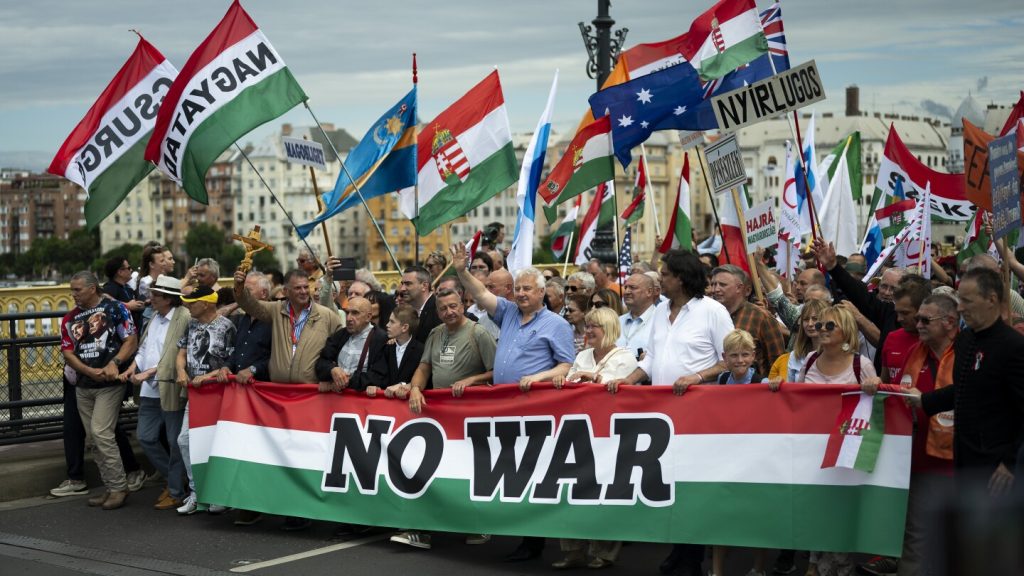The European Parliament election is approaching, and Hungary’s Prime Minister Viktor Orbán is rallying his supporters with a “peace march” in Budapest. Orbán, who has been in power for 14 years, is framing the election as a crucial choice between peace in Europe and the possibility of a world war. He is focusing his campaign on the war in Ukraine, portraying himself as a leader who can keep Hungary out of the conflict and prevent further escalation.
During the demonstration, Orbán declared his intentions to “occupy Brussels” and change the EU’s approach to supporting Ukraine in its conflict with Russia. He urged Hungarian voters to support his government in order to keep the country out of war. Orbán’s party, Fidesz, has a reputation for being friendly towards Russia, refusing to supply weapons to Ukraine and threatening to block sanctions against Moscow. Despite facing criticism for his stance, Orbán’s party is expected to win the most seats in the upcoming EU election.
However, political newcomer Péter Magyar has capitalized on Orbán’s vulnerabilities, gaining support by accusing Fidesz of corruption and criticizing its control over the media. Magyar has organized large protests and is gaining momentum as the election approaches. Nevertheless, Orbán’s right-wing populism and warnings of military support to Ukraine leading to a new world war still resonate with many Hungarians. Supporters at the demonstration expressed trust in Orbán’s leadership and his ability to protect Hungary from the conflict in Ukraine.
Orbán has condemned his EU and NATO partners for assisting Ukraine, labeling them as “pro-war,” and has advocated for the election of former U.S. President Donald Trump. He believes that a Trump victory in November would lead to a “transatlantic peace coalition” that could help end the fighting in Ukraine. Orbán’s rhetoric appeals to those who fear the consequences of getting involved in the conflict and believe that supporting Ukraine could result in repercussions for Europe.
Despite challenges from critics and political opponents, Orbán’s message continues to resonate with a significant portion of Hungarian society. His stance on the war in Ukraine and his promises to keep Hungary out of it have struck a chord with many citizens. As the European Parliament election nears, Orbán’s party remains a strong contender for the most seats, but the rise of political newcomers like Magyar indicates a growing diversity of opinions and choices within Hungarian politics. The outcome of the election will determine Hungary’s role and stance in relation to the conflict in Ukraine and its future within the European Union.


